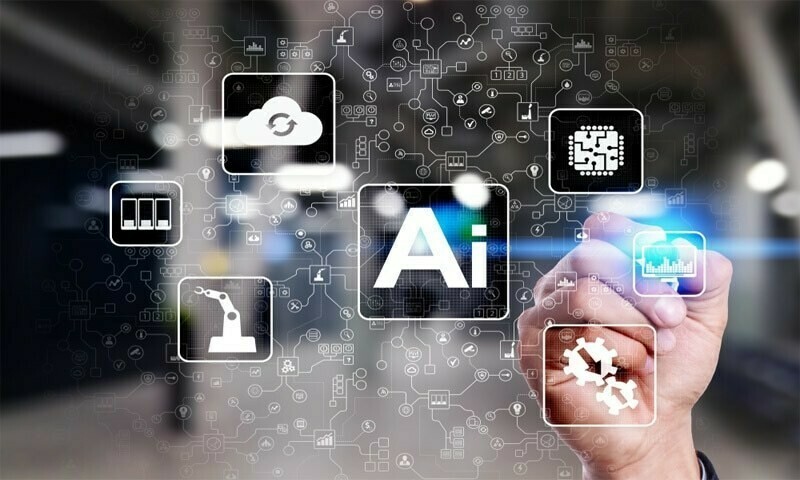AUSTIN: Artificial intelligence enthusiasts are betting that the technology will help solve humanity’s biggest problems, from wars to global warming, but in practice, those may be unrealistic ambitions for now.
“It’s not about asking AI ‘Hey, this is a sticky problem. What are you going to do?’ And AI is like, ‘Well, you need to completely reinvent this part of the economy,'” said Michael Littman, a Brown University professor of computer science.
Littman was at the South by Southwest (or SXSW) arts and technology festival in Austin, Texas, where he spoke on one of many panels on the potential benefits of AI.
“It’s a pipe dream. It’s a bit of science fiction. What most people are doing is trying to make AI bear specific problems that they’re already solving, but only more. Want to be efficient. “It’s not just a case of pushing that button and everything is set,” he said.
With their promising titles
“How to Leverage AGI and Avoid the Robot Apocalypse”, and the ever-present presence of tech giants, the panels draw large crowds, but they often have more practical purposes, such as promoting a product.
At a meeting titled “Inside the AI Revolution: How AI is Empowering the World to Achieve More,” Simi Olabisi, a Microsoft executive, extolled the benefits of the technology on the company’s cloud service Azure.
Using Azure’s AI Language feature in call centers, “Maybe when a customer called, they were angry, and when they ended the call, they were really appreciative. Azure AI Language really captures that emotion. can capture, and tell businesses how their customers are feeling,” she explained.
‘Smarter than humans’
The concept of artificial intelligence, whose algorithms are capable of automating tasks and analyzing mountains of data, has been around for decades.
But it took on a whole new dimension last year with the success of ChatGPT, a generative AI interface launched by OpenAI, the now-iconic AI startup primarily funded by Microsoft.
OpenAI claims it wants to create artificial “general” intelligence, or AGI, that will be “smarter than humans in general” and “elevate humanity,” according to CEO Sam Altman.
This ethos was very present at SXSW, with talk of “when” AGI will become a reality rather than “if”. Ben Goertzel, a scientist who heads the SingularityNET Foundation and AGI Society, predicted the arrival of General AI by 2029.
“Once you have a machine that can think as well as a smart human, you’ll be in a few years at most a machine that can think a thousand or a million times better than a smart human. , because this AI can change its source code,” Goertzel said.
Wearing a leopard-print faux-fur cowboy hat, he advocated the development of AGI with “empathy and compassion” and advocated integration into robots that “look like us” to ensure that These “super AIs” get along well with humanity.
David Henson – founder of Henson Robotics and designer of Desdemona, a humanoid robot that works with creative AI – ponders the pluses and minuses of AI with superpowers.
AI’s “positive disruptions … could help solve global sustainability problems, even though people might just be creating financial trading algorithms that are perfectly efficient,” he said.
Hanson fears chaos from AI, but points out that humans are already doing a “good job” of playing “existential roulette” with nuclear weapons and the “fastest mass extinction in human history.” are causing the incident. But “it may be that AI has seeds of wisdom that blossom and grow into new forms of wisdom that can help us become better,” he said.
‘not there yet’
Initially, AI should accelerate the design of new, more sustainable drugs or materials, AI believers said.
Even if “we’re not there yet…in the dream world, AI can handle the complexity and randomness of the real world, and…discover entirely new content that we will enable things we never thought possible,” said Roxanne Tully, investor at Piva Capital.
For example, today, AI is already proving its worth in warning systems for tornadoes and wildfires.
But we still need to evacuate populations, or convince people to vaccinate themselves in the event of a pandemic. ” emphasized during a panel titled “We created this problem. Inequality wasn’t caused by AI, it was caused by humans, and I think AI can help a little bit. But only if humans decide to use it as a problem. want to use to deal with, Ghani said.
Published in Dawn on March 17, 2024.
